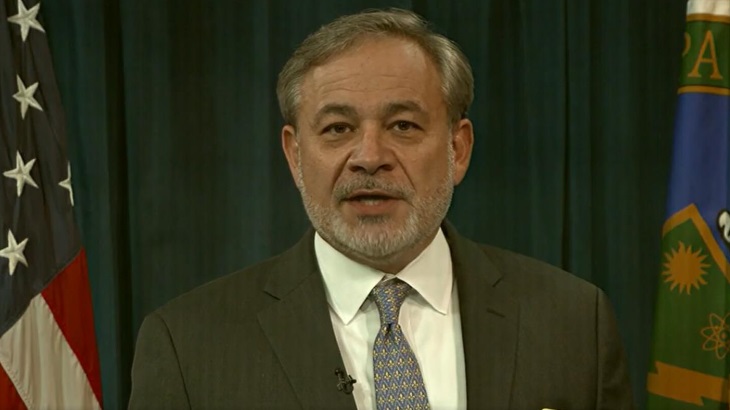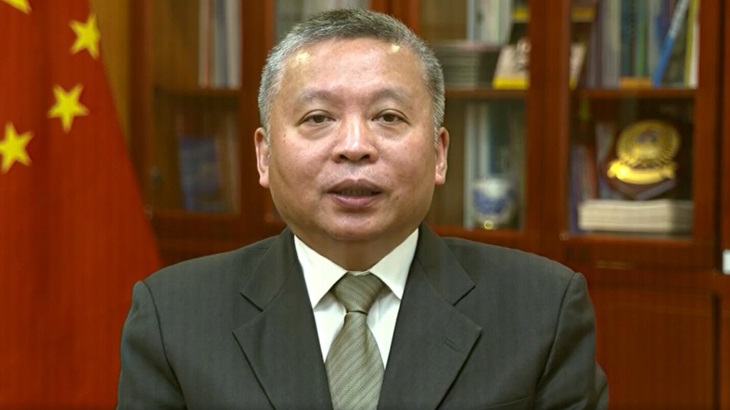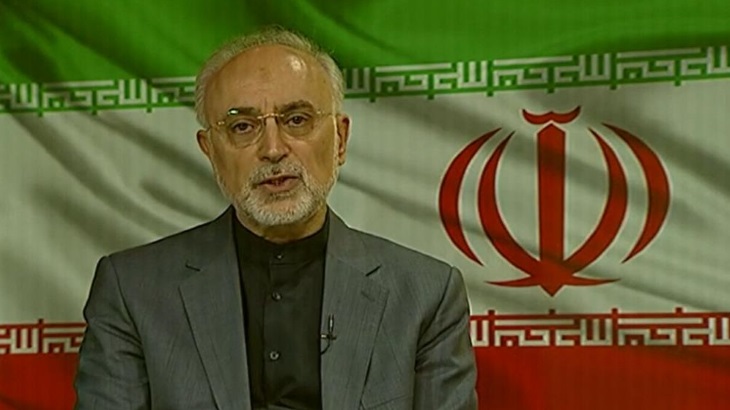Grossi held talks in Tehran last month with Ali Akbar Salehi, the head of the Atomic Energy Organisation of Iran, as well as with President Hassan Rouhani and Foreign Minister Javad Zarif, on access for IAEA inspectors to the country's nuclear sites. In June, the IAEA Board of Governors adopted a resolution calling on Iran to fully cooperate with the IAEA in implementing its NPT Safeguards Agreement and Additional Protocol, and satisfy the IAEA's requests without further delay. The resolution, submitted by France, Germany and the UK, was adopted by a vote of 25 to 2 with 7 abstentions. The two objections were made by China and Russia.
"We were able to solve some important difficulties we had there," Grossi said today. "We restored cooperation and we continue the indispensable inspection activity in that country as in the rest of the world. We weather every crisis through diplomacy and we will continue doing so. Fair and firm."
Grossi reports regularly to the IAEA Board of Governors on Iran’s implementation of its nuclear-related commitments under the Joint Comprehensive Plan of Action (JCPoA). The Agency continues to verify the non-diversion of nuclear material declared by Iran under its Safeguards Agreement. Evaluations regarding the absence of undeclared nuclear material and activities for Iran continue.
"Last month, I went to Tehran for discussions with President Rouhani and other senior officials. We reached agreement on the resolution of some safeguards implementation issues raised by the Agency," Grossi said.
"The Agency subsequently conducted a complementary access, under the Additional Protocol, at one of two locations specified by us. Our inspectors took environmental samples which will be analysed. A complementary access at the second specified location will take place later this month. I welcome the agreement between the Agency and Iran, which I hope will reinforce cooperation and enhance mutual trust."
Ahead of Grossi's trip to Tehran, Zarif said the visit "has nothing to do with the trigger mechanism", referring to the US administration's letter to the UN Security Council (UNSC), requesting to initiate the 'snapback' mechanism of the Iran nuclear deal that was signed five years ago.
Salehi told the IAEA's General Conference today however that the two issues were linked.
"Amidst such a unique gloomy and painful environment wherein almost all Members of the Agency have suffered one way or another from the COVID-19, the international community could not witness tattering of another thread of multilateralism, namely the architecture of the United Nations is at stake. It is no secret that international organisations are under political pressure from certain states and the IAEA is of no exception," Salehi said in a pre-recorded video address. “At this critical juncture, on the one hand the raison d'être of the United Nations’ system has come under serious question, and on the other hand the IAEA is facing a very serious challenge of this kind since its inception."
He noted that 13 out of the 15 members of the Security Council had “not only unanimously rejected the US resolution on the extension of the arms embargo against Iran, but also didn’t recognise the US as a JCPoA participant to use specific mechanisms of the deal to bring back [the] Council’s already terminated sanctions".
The IAEA and Iran have shown "utmost vigilance", he said, towards mutual cooperation without any outside influence. "Thus, within the framework of the safeguards obligations of States under Comprehensive Safeguards Agreement (CSA) and Additional Protocol (AP), the Agency should show its determination that it will not compromise its impartiality, independence and professionalism for the sake of short-sighted comforts ... Such approaches taken in New York and in Vienna are the real silver linings in this gloomy political environment for multilateralism and deserve genuine compliments."
He added: "Although it seems that the JCPoA is caught in a quasi-stalemate situation in terms of resolving the difficulties caused by the illegal withdrawal of the US from the deal, there is still a broad agreement among the international community that the JCPoA should be preserved as the real turning point in the history of multilateralism and is an important achievement of diplomacy."

In his own pre-recorded video address, US Secretary of Energy Dan Brouillette said: "On top of its horrific record as the world's largest state sponsor of terrorism, Iran has a lamentable history of providing only grudging, dilatory, and incomplete cooperation - if at all - with the IAEA. Iran must do much more to ensure that its compliance with safeguards obligations is both timely and complete. Such compliance is necessary to our objective of ensuring that Iran will never possess a nuclear weapon."
Also key to realising this objective, he said, is full international implementation of relevant United Nations Security Council provisions.
"We encourage all states that have not yet done so to bring into force the highest standard of IAEA safeguards agreements, including a Comprehensive Safeguards Agreement, an Additional Protocol, and, if applicable, a modified Small Quantities Protocol, " he said.

Zhiang Kejian, chairman of the China Atomic Energy Authority, said: "As the intergovernmental international organisation responsible for nuclear safeguards, the Agency attracted lots of attention from the international community for its efforts in addressing hot-spot nuclear issues."
He added: "China always holds that the Korean Peninsula nuclear issue and Iranian nuclear issue should be peacefully resolved through dialogue and negotiations, and supports the Agency and the Director General to continue to play due roles to push forward diplomatic settlement of the issues."








_97013.jpg)






